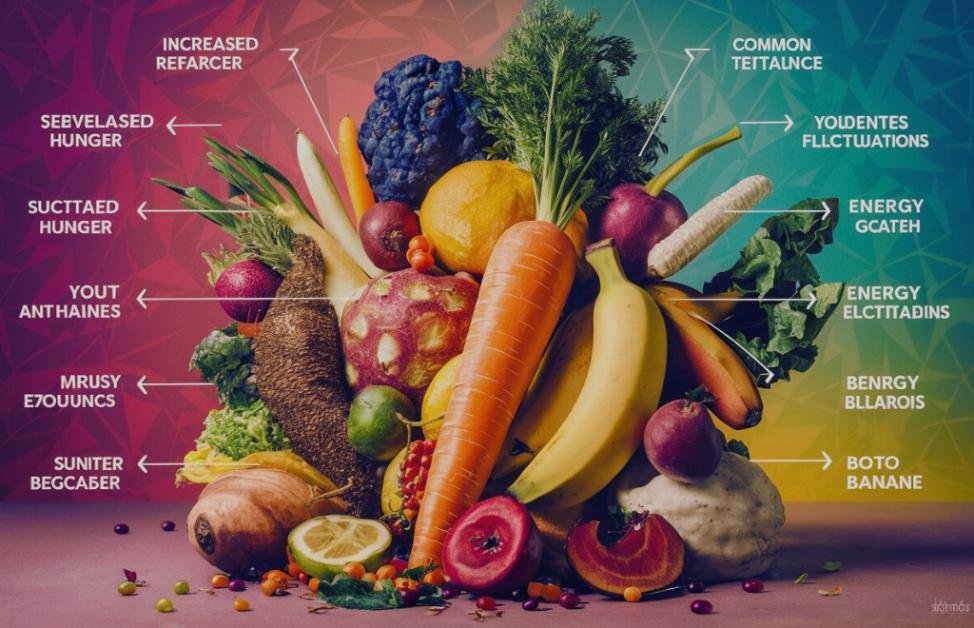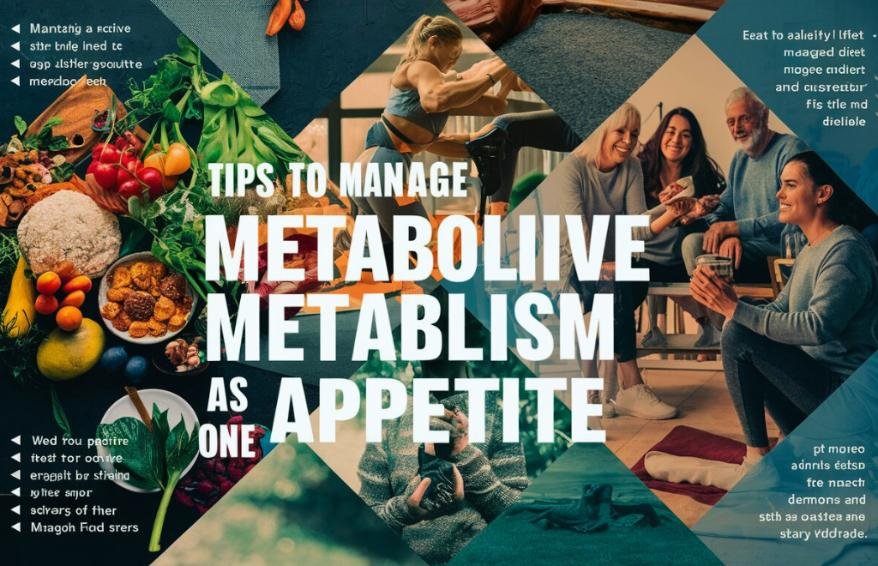Our bodies alter clearly as we get older. The change in **metabolism and appetite** is one often shared worry. These developments can influence our weight management, sense of hunger, and food processing ability. Are these problems unavoidable, though, or can we act to keep our health and fitness?
This post will look at how aging affects metabolism and hunger, why these changes occur, and how you could properly regulate them.
### Appetite Changes with Age
Appetite typically varies with age , and this may go both ways:

– **Decreased Appetite**: Some elderly persons eat less owing to diminished taste, smell, or intestinal difficulties. – **Increased Appetite**: Others feel higher desires, generally for sweet or high-calorie meals, due to hormonal shifts or emotional circumstances.
These alterations can lead to poor diet or overeating, both of which decrease overall fitness.
—
### What is metabolism, and how does it function?
Metabolism is the process by which food is turned into energy within your body. This energy fuels everything, from breathing to muscular activity.
Your **metabolism** consists mostly in two components:
1. **Basal Metabolic Rate (BMR)**: The energy your body consumes at rest to keep important functions running. 2. **Active Metabolism**: The energy burned via movement and activity.
Together, these processes influence how effectively your body uses calories. A faster metabolism burns more calories, whereas a slower one stores more as fat.
—
### How Aging Affects Metabolism

As we age, our **metabolism** naturally slows down. Here’s why:
- Loss of Muscle Mass**: Muscles burn more calories than fat, even at rest. Aging lowers muscular mass, decreasing calorie demands.
- Hormonal Changes**: Hormones including testosterone and estrogen drop, which might impair metabolic processes.
- Less Physical Activity**: Many people move less as they age, resulting to fewer calories expended daily.
This slowed metabolism makes weight gain more likely, even if eating habits stay the same.
—
### Common Signs of Metabolism and Appetite Changes

How can you determine whether aging is hurting your **metabolism and appetite**? Look for these signs:
- Difficulty reducing weight despite good meals and activity.
- Changes in hunger levels or meal portion proportions.
- Reduced energy or increased weariness.
- Noticeable alterations in body composition, including acquiring fat around the midsection.
Recognizing these changes early helps you alter your lifestyle to maintain your fitness.
—
### Tips to Manage Metabolism and Appetite as You Age

The good news is that you can take efforts to offset these changes. Here’s how:
#### 1. **Build and Maintain Muscle** Strength training activities, including lifting weights or completing resistance workouts, assist sustain muscle mass. This enhances your **metabolism** and maintains your body robust.
#### 2. **Stay Active Daily** Incorporate exercise into your regimen, such as walking, swimming, or yoga. Regular movement helps burn calories and manage appetite.
#### 3. **Eat Nutrient-Dense Foods** Focus on healthy foods including vegetables, fruits, lean meats, and whole grains. These keep you full longer and encourage a healthy metabolism.
#### 4. **Hydrate Regularly** Dehydration may sometimes seem like hunger. Drinking adequate water minimizes excessive eating and maintains your metabolism effective.
#### 5. **Prioritize Sleep** Lack of sleep alters hormones that govern appetite and fullness, leading to overeating. Aim for 7-8 hours of decent slumber.
—
### How Fitness Helps Manage Metabolism and Appetite

Fitness plays a significant role in countering age-related changes. Exercise keeps your **metabolism** active and helps reduce hunger hormones. Strength training develops muscle, while cardio enhances calorie burn.
Combining both types of exercise helps your body stays healthy and retains its capacity to manage food properly.
—
### Long-Term Benefits of Managing Metabolism and Appetite
When you take efforts to balance your **metabolism and appetite**, the advantages extend beyond just weight control. You’ll notice:
– **Improved Energy Levels**: A healthy metabolism feeds your everyday activities.
– **Better Mood**: Balanced eating and exercise reduce stress and increase mental well-being.
– **Enhanced Longevity**: Maintaining muscular mass and a healthy weight minimizes the incidence of age-related ailments.
– **Greater Confidence**: Feeling healthy and in control enhances your self-esteem.
—
### Conclusion
Changes in **metabolism and appetite** are a normal part of aging, but they don’t have to dictate your life. With the correct tactics, you can handle these adjustments effectively. Building muscle, being active, and eating nutrient-rich meals are critical elements to maintaining your fitness and general health.
Aging is inevitable, but feeling strong and energetic is under your control. Take command of your body, and enjoy the advantages of a healthy lifestyle at any age.
—
Frequently Asked (FAQS)
1. Why does metabolism slow down as we age?
Metabolism decreases owing to muscle loss, hormonal changes, and diminished physical activity, all normal as we get older.
2. Can I speed up my metabolism beyond 40?
Yes! Strength training, frequent exercise, and consuming protein-rich meals can help increase your metabolism.
3. What foods help a healthy metabolism?
Lean meats, whole grains, green veggies, and healthy fats like avocado or nuts boost metabolic wellness.
4. Does aging impact appetite control?
Yes, aging can induce both increased and decreased hunger owing to hormonal changes, impaired taste, or emotional causes.
5. Is weight gain inevitable with age?
No, weight increase isn’t inevitable. By remaining active and eating wisely, you may manage your weight efficiently.
6. How much exercise is good for older adults?
Aim for 150 minutes of moderate exercise weekly, including strength training twice a week.











